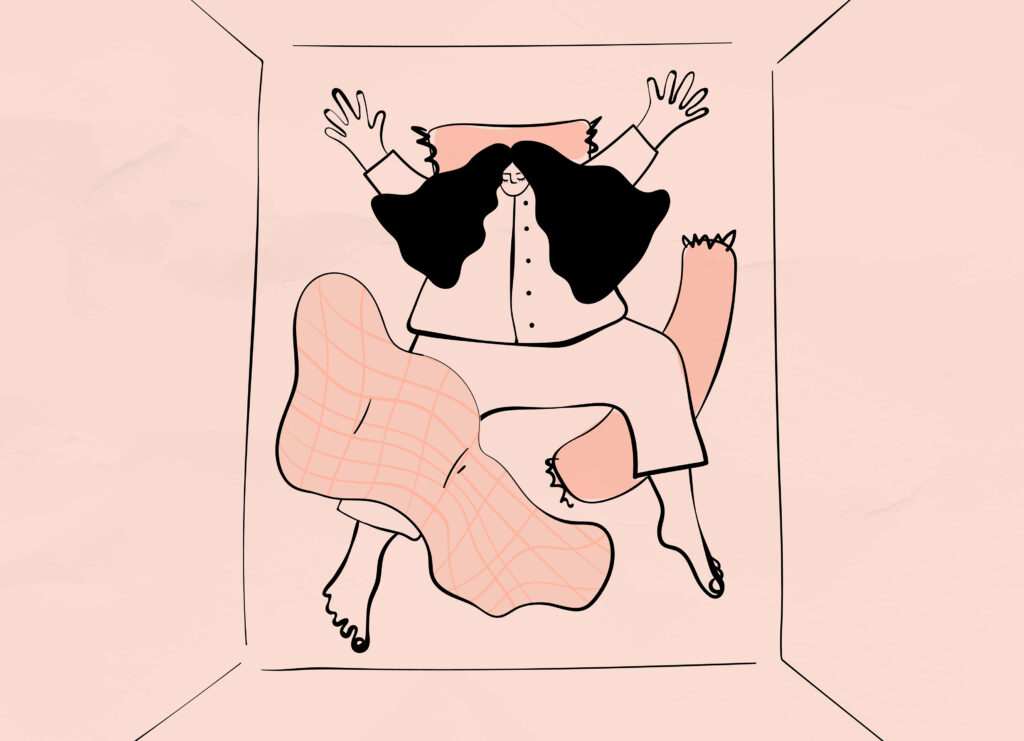We’re all guilty of it. Whether it’s when you’re firing off emails on autopilot, playing with the kids without the requisite enthusiasm, or listening to the finer details of your partner’s latest dispute and only umming and ahhing, it’s only natural that sometimes we zone out a little.
Indeed, having problems with concentration is something that will have affected everyone at some stage. But what happens if you’re always suffering from poor concentration and it’s beginning to affect your work and relationships negatively? As you can appreciate, this is when intervention is required.
You’re likely reading this article today because you’re fed up with having poor concentration, and you want to do something about it. Perhaps you’re keen to live each day mindfully and in the moment, and benefit from the wisdom and insights such ‘presentness’ brings. The good news is that there are tried-and-tested remedies available for those concerned about their concentration. So, do you suffer from poor concentration? If so, here are 7 potential solutions.
Prioritise Better Sleep Hygiene
Sure, some people don’t need as much sleep as others each night. But let’s not kid ourselves; if you’re only getting around five hours or less each night, it’ll impact your concentration levels hugely. When you sleep, your brain uses the time to ‘recharge’ itself, and not getting enough of the good stuff is hugely impactful on our cognitive function. Indeed, the right amount of sleep is so good for your productivity and performance, and insufficient or excessive so bad, that it’s often suggested that sleep should be prescribed by doctors.
By getting enough sleep each night – between 7 and 8 hours is best for cognitive performance and quick thinking – you’ll feel more alert and focused when you wake up. Plus, you’ll have enough energy to deal with even the most taxing of issues that your day throws at you.
But how to do sleep better, we hear you ask. Firstly, it’s vital that you perfect that bedtime routine, because how you set up for sleep and your activity in the hours preceding it are the key components in whether it’s a restful one or not.
Exercising a couple of hours before sleep, as well as yoga or meditation just before you tuck in, can be really helpful, but perhaps even more seismic is to remove all distractions not related to sleep from the bedroom, most importantly, blue light-emitting screens and anything which produces alerts (looking at you, phone) which you’ll feel obliged to respond to. Try to turn in at the same time each night to hack your circadian rhythm and get your body clock working to your needs, not the other way round.

…& Get Your Morning Routine Sorted
Another key contributor to great sleep hygiene and improved concentration throughout the day is making sure your morning routine is primed and optimised. Sure, we’re not all suited to sprightly, early-bird tendencies, but becoming a morning person will definitely help with your concentration, and that’s for sure.
It’s all about the small rituals you enact and reenact each morning and the positive habits you form because of them. We’re sure you already know that the ‘snooze’ button is an ally of groggy, tired eyes. Those extra few minutes, which seem so precious at the time, aren’t sufficient for completing another full sleep cycle, and as such, it will have you feeling less rested than if you’d leapt up when you first woke.
But how to leap up? Since most of us hit the snooze button impulsively, simply place your alarm clock out of reach, so you have to leave bed to turn it off. Then, ride that wave of motion and momentum all the way to the kettle! Good morning.
A spot of light exercise in the morning can also contribute to greater concentration throughout the day, boosting cortisol and endorphin production, which are great contributors to our alertness and focus. Of course, a light, healthy breakfast also does no harm!

Get Your Eyes Checked
Do you tend to feel more lethargic as the day progresses? Does a headache emerge after a couple of hours of staring at a screen, and then refuse to abate? And do you always need to focus really hard on distant objects or ones near to your eyes? If you’ve answered reluctantly in the affirmative to these questions, then you’ll likely need to take a trip to your local opticians.
That’s because poor eyesight can result in concentration problems. If you have to spend a lot of time squinting or overly focusing on objects, you’ll feel exhausted, and you’re at risk of diverting cognitive energy to attempts at realigning your vision. As a result, your concentration levels will plummet.
Most people’s eyesight worsens as they age and many of those people will need corrective eyeglasses or contact lenses as a matter of course. An eye test is quite cheap, and sometimes free, depending on where you go, and every adult should have one once in a while.
In addition to traditional eyeglasses and contact lenses, there are other procedures that can help improve your vision and, consequently, your concentration. Orthokeratology, commonly referred to as Ortho-K, is a non-surgical procedure that involves wearing specially designed contact lenses overnight to temporarily reshape the cornea. This can provide clear vision during the day without the need for glasses or contact lenses.
Other options include LASIK surgery, which permanently reshapes the cornea to correct vision, and PRK (Photorefractive Keratectomy), a similar procedure that is often recommended for those with thinner corneas.
By exploring these options with your optometrist, you can find the best solution for your vision needs and improve your overall concentration and quality of life.
…& Your Ears
If your concentration suffers throughout the day, you might also want to consider getting your hearing tested. Those who suffer from lessened auditory perception or impaired hearing may also be dealing with decreased cognitive function because of it. This is in large part due to cross-modal cortical reorganisation, where the brain struggles to readjust prioritising the senses when one is deprived. If you’re consistently straining to hear what’s going on around you, it can lead to stress and severely decreased concentration.
Fortunately, the NHS offers free hearing tests; just go to your GP and say you’re concerned that your hearing is affecting your daily tasks and they can refer you on for an examination. There are also several online hearing tests you can try, which can be found through a quick Google search and accessed using ear or headphones, though we’d caution against using them as an absolute diagnosis.
Read: If it’s not safe to use cotton buds, just how should I clean my ears?
Stay Hydrated & Well Fed
Dehydration can significantly impact your concentration and cognitive function. Even mild dehydration can lead to fatigue, difficulty focusing, and a decline in mental performance. Make it a habit to drink water regularly throughout the day. Aim for at least 8 glasses of water daily, and more if you’re physically active or in a hot environment. Carry a reusable water bottle with you to remind yourself to stay hydrated. Additionally, consuming water-rich foods like fruits and vegetables can also help maintain your hydration levels.
Your diet plays a crucial role in regulating sleep patterns and, consequently, your concentration levels. Consuming foods rich in tryptophan, such as turkey, chicken, bananas, and oats, can help your body produce serotonin and melatonin, hormones that regulate sleep. Magnesium-rich foods like leafy greens, nuts, and seeds can also promote relaxation and improve sleep quality. Conversely, it’s wise to avoid caffeine, alcohol, and sugary foods close to bedtime, as these can disrupt your sleep cycle. Instead, opt for a light evening meal containing complex carbohydrates and proteins, which can help stabilise blood sugar levels throughout the night. A calming herbal tea, such as chamomile or valerian root, can also signal to your body that it’s time to wind down and prepare for rest.
Some individuals seeking to sharpen their concentration have turned to supplements that claim to enhance mental performance. Among these, some may take nootropics for better focus and clarity. Nootropics—often referred to as ‘smart drugs’ or cognitive enhancers—are a growing field of interest for those aiming to support memory, alertness, and overall brain function. However, it’s important to note that whilst some nootropics show promising results in preliminary studies, research in this field remains ongoing and not yet conclusive, with many supplements lacking robust clinical evidence to support their effectiveness and long-term safety profiles.

Practice Mindfulness & Meditation
Incorporating mindfulness and meditation into your daily routine can greatly enhance your concentration and mental clarity. Mindfulness involves paying full attention to the present moment, which can help reduce stress and improve focus.
Start with just a few minutes of meditation each day, gradually increasing the duration as you become more comfortable with the practice. There are numerous apps and online resources available to guide you through mindfulness exercises and meditation techniques. By regularly practicing mindfulness, you can train your brain to stay focused and present, leading to better concentration in all areas of your life.
Consider Your Career
If your concentration levels are only low when you’re at work, then perhaps it’s a lack of stimulation and challenge that’s causing your sense of poor focus. When we’re not sufficiently engaged with a task, this is bound to happen, as your mind will start to wander, and you’ll soon lose focus on what you’re supposed to be doing.
Rest assured that this isn’t a medical issue. Instead, why not consider seeking pastures new? We’ve only got one shot at this thing called life, so why waste it doing a job that doesn’t excite you. Seek fresh challenges and renewed focus, and you may find your vigour returns!
The Bottom Line
We all get a little bored and distracted from time to time, and that’s only natural. But if your issues with focus and poor concentration are affecting your relationships, work and hobbies negatively, then it could well be time to take action.





